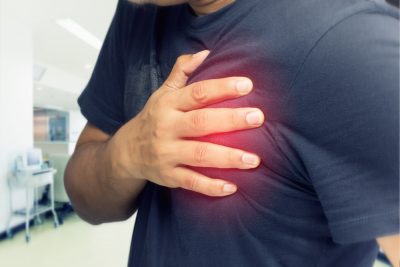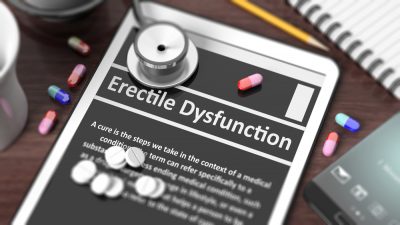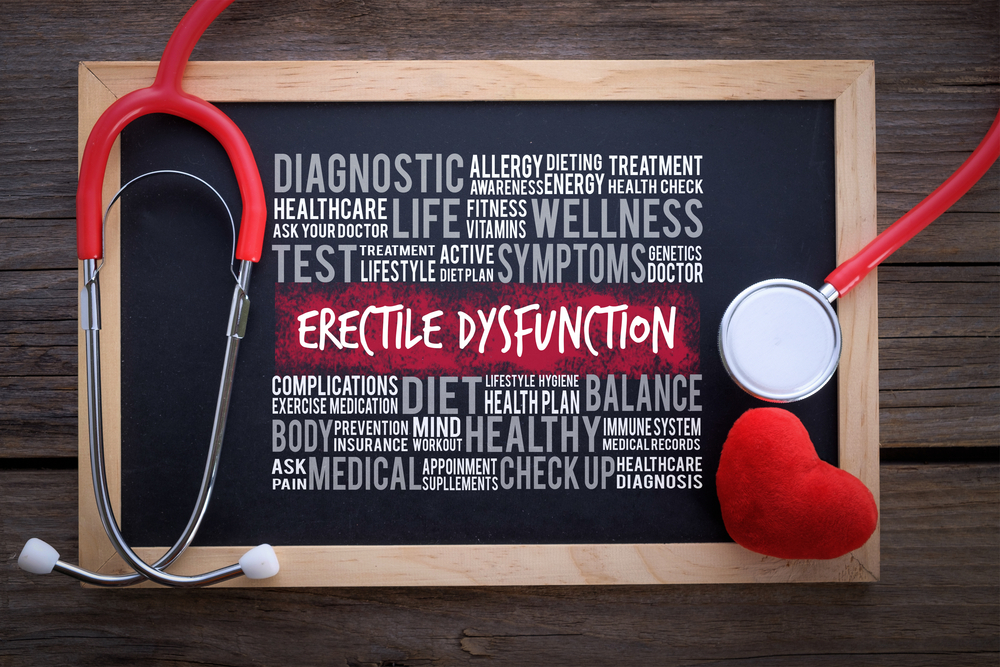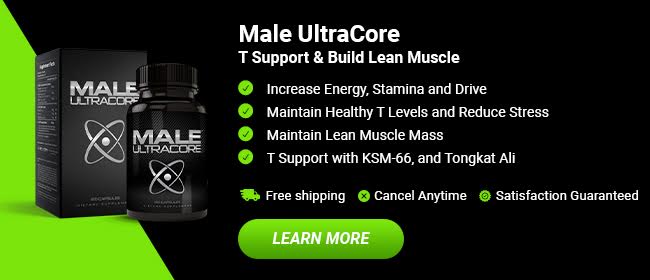Erectile dysfunction, also known as ED, occurs when a man can’t keep an erection hard enough to please or to satisfy.
This might mean the complete and total lack of ability to gain an erection, or getting erections that just don’t last as long as they used to. ED is a common condition affecting millions of American men and even more worldwide – and is a key condition affecting libido in men.
ED doesn’t discern between ages in adult men, but it becomes increasingly common the older men get. That is, by the time a man hits age 40, his chances of having experienced ED would correspond to a 40%. Risk factors for ED increase 10% for every decade, as demonstrated in this study.
Therefore, age is indeed an ED risk factor. The good news is that ED is something men can treat and manage to enjoy a better quality of life at any age. Discuss with your healthcare provider if you are concerned with ED, or if you suspect that something’s awry with the bigger picture involving your health.
Let’s examine how age interacts with ED.
The relationship between age and ED
Here’s the thing – ED rears its ugly head whenever it wants. That is, there is no exact specific age when men experience it – but the likelihood increases much more drastically after hitting age 50. However, more and more younger men are experiencing ED as early as their 20s. ED doesn’t choose between age groups, as evidenced by the following list of most common age-related health conditions linked to increased ED risk.
 Heart disease. Among the most common culprits of ED in men aged 50 and above is atherosclerosis – the buildup of arterial plaque caused by high cholesterol. This leads to restricted blood flow to the penis and consequently reducing the ability to obtain and enjoy hard, firm, and long-lasting erections.
Heart disease. Among the most common culprits of ED in men aged 50 and above is atherosclerosis – the buildup of arterial plaque caused by high cholesterol. This leads to restricted blood flow to the penis and consequently reducing the ability to obtain and enjoy hard, firm, and long-lasting erections.- High blood pressure (hypertension). Hypertension, or high blood pressure, is a condition where blood is pumped through blood vessels with more force than it should, which leads to the damaging and narrowing of blood vessels. Worse, this condition might lead to an increased risk of heart disease and stroke.
- Type 2 diabetes. High blood sugar levels also play a role in damaging blood vessel walls, which hinders blood flow necessary to obtain satisfying, long-lasting erections.
- Stroke. A stroke can create neurological damage that can contribute to ED (Koehn, 2019).
- Cancer: A variety of physical and psychological issues related to cancer symptoms, surgery, and treatment can contribute to ED (American Cancer Society, n.d.).
- Anxiety and depression: ED isn’t necessarily “all in your head,” but depression, anxiety disorders, and issues like relationship problems and performance anxiety can all cause ED (Rajkumar, 2015).
Other lifestyle risk factors for ED
ED can also occur as a side effect of certain medications, including antidepressants. If you’re experiencing ED, be sure to tell a healthcare provider about all the medications you’re taking. They might be able to adjust your dose or substitute another medication.
Other lifestyle factors that can contribute to ED include: Having excess weight or obesity, not getting enough exercise, smoking or using tobacco products, drinking excessively (having more than two alcoholic drinks a day), and using recreational drugs.
ED can also result from physical conditions in which the body’s nerves are damaged or don’t function properly, such as nerve and spinal cord injuries and multiple sclerosis.
How to treat ED
 The good news is that there are many options for treating ED.
The good news is that there are many options for treating ED.
Oral medications for ED are highly effective at improving sexual function. Several are available, including sildenafil (brand name Viagra), tadalafil (brand name Cialis), and vardenafil (brand names Levitra and Staxyn).
Non-oral medications have been helpful for some men, including alprostadil, papaverine plus phentolamine (brand name BiMix) and papaverine, phentolamine, and alprostadil (brand name TriMix). These are medications that can be injected directly into the penis, causing an erection.
Some men have found natural remedies for ED to be effective at improving their erections, and some research backs that up: Studies have shown that certain supplements (such as DHEA, ginseng, L-arginine, L-carnitine, and Yohimbe) may be helpful for relieving ED.
If low testosterone is responsible for your ED, testosterone replacement therapy (TRT) can boost your testosterone levels via injection, a wearable patch, or a gel applied to the skin.
For some men with ED, using a device such as a penis pump, cock ring, or—in severe cases—a surgically placed penis implant has been effective in restoring sexual function.
Your erections will be best when you’re healthy. Making simple lifestyle changes such as getting more exercise, eating a healthy diet, quitting smoking, and recreational drugs, and limiting your alcohol consumption might be enough to improve ED and your sexual health.
No matter what your age, if you’re experiencing ED, it’s a good idea to talk with a healthcare provider to identify any underlying health conditions and find a treatment plan that is right for you.








COMMENTS